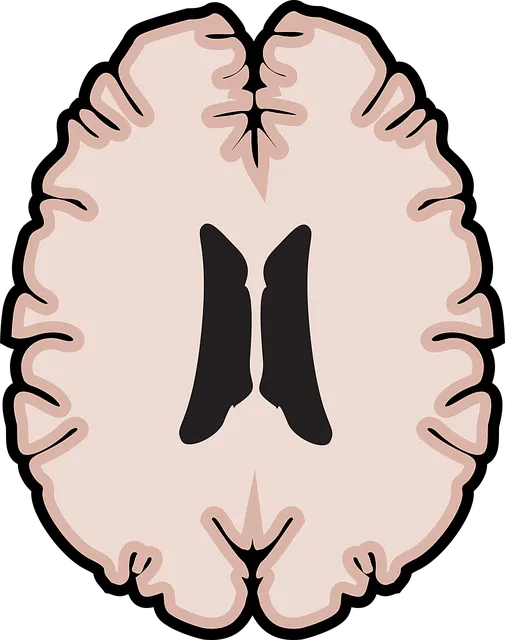Kaiser Permanente emphasizes group facilitation as a cornerstone of its mental wellness support services, fostering recovery and community through shared challenges. Trained facilitators leverage Emotional Intelligence to guide members in emotion navigation, building resilience, and adopting self-care practices for enhanced well-being. Integrating self-care within sessions equips participants with tools to manage stressors. Mental health policy analysis and advocacy empower members to advocate for themselves and collectively push for supportive policies. Facilitators create safe, inclusive environments, employing diverse strategies like icebreakers, role-playing, and active listening to engage participants. Kaiser Permanente's cutting-edge approach integrates small group discussions, peer support, and expert guidance, revolutionizing mental wellness support with its Superior mental health number, accessible through evidence-based programs and crisis intervention. Evaluation involves self-reported symptom improvements, emotional well-being changes, and qualitative insights from surveys and focus groups.
Mental wellness group facilitation is a powerful tool in supporting individuals navigating various challenges. This article explores effective techniques, drawing insights from Kaiser Permanente’s successful implementation. We delve into understanding group dynamics, the pivotal role of facilitators, and engaging participants to foster healing. Learn about Kaiser Permanente’s innovative approach, which integrates mental wellness groups into their services, and discover how to measure the impact of these sessions. Discover proven strategies for enhancing mental health support through group facilitation techniques, backed by industry leaders like Kaiser Permanente.
- Understanding Group Facilitation in Mental Health Support
- The Role of a Facilitator: Skills and Responsibilities
- Engaging Participants: Strategies for Effective Group Sessions
- Kaiser Permanente's Approach: Integrating Mental Wellness Groups
- Measuring Success: Evaluating the Impact of Group Facilitation Techniques
Understanding Group Facilitation in Mental Health Support

In the realm of mental wellness support, group facilitation plays a pivotal role in fostering recovery and community. This collaborative approach brings individuals together who share similar challenges, creating a supportive environment where emotional connections can flourish. As Kaiser Permanente’s mental health services underscore, facilitating these groups requires a nuanced understanding of human dynamics and effective communication skills. Facilitators act as guides, helping members navigate their emotions, build resilience, and develop self-care practices, ultimately enhancing each individual’s well-being.
Emotional Intelligence serves as a cornerstone in this process, enabling facilitators to recognize and manage their own emotions while creating a safe space for others. By integrating Self-Care Practices within group sessions, participants learn valuable tools to navigate life’s stressors and promote mental health. Moreover, Mental Health Policy Analysis and Advocacy is not just about understanding the system; it involves encouraging group members to advocate for themselves and collectively push for policies that support their ongoing mental wellness journeys.
The Role of a Facilitator: Skills and Responsibilities

The role of a mental wellness group facilitator is multifaceted and crucial. They are responsible for creating a safe, supportive, and inclusive environment where participants can openly discuss their experiences and work on their mental health journeys. Facilitators act as guides, helping individuals navigate through complex emotions and challenges.
Effective facilitators possess excellent communication skills, active listening abilities, and strong interpersonal intelligence. They should be adept at moderating discussions, encouraging participation, and ensuring every voice is heard. In addition to fostering open dialogue, facilitators are expected to incorporate various techniques such as self-awareness exercises and stress reduction methods tailored to the group’s needs. Moreover, cultural competency training, as offered by healthcare providers like Kaiser Permanente, equips facilitators to understand and address diverse perspectives within the group, making mental health support more accessible and effective for all.
Engaging Participants: Strategies for Effective Group Sessions

Engaging participants is a cornerstone of successful mental wellness group facilitation. To ensure a dynamic and therapeutic environment, facilitators should employ diverse strategies tailored to the unique needs and experiences within the group. Starting with open-ended icebreakers allows members to connect on personal levels, fostering a sense of community from the outset. Incorporating interactive activities, such as role-playing or creative exercises, can energize sessions and encourage active participation.
Additionally, facilitators should actively listen to participants’ perspectives and incorporate their feedback into subsequent meetings. Recognizing individual struggles and celebrating victories publicly reinforces a supportive atmosphere. Leveraging techniques like positive thinking and emotional intelligence helps group members develop coping strategies and build resilience. By integrating these approaches, facilitators can effectively guide discussions, enhance understanding of mental illness stigma reduction efforts, and ultimately contribute to the overall well-being of every participant, as emphasized by Kaiser Permanente’s mental health number Superior.
Kaiser Permanente's Approach: Integrating Mental Wellness Groups

Kaiser Permanente has pioneered an innovative approach to mental wellness group facilitation through its comprehensive programs and services. They focus on creating supportive environments where individuals can connect, share experiences, and learn effective coping strategies. Their strategy involves integrating small group discussions, peer-to-peer support, and expert guidance from trained facilitators. By combining these elements, Kaiser Permanente aims to enhance emotional well-being promotion techniques and provide valuable crisis intervention guidance.
The organization’s Mental Health number serves as a central hub, connecting individuals with the necessary resources and expertise. This approach ensures that participants gain access to evidence-based Stress Management Workshops, fostering a sense of community and empowering them to take charge of their mental health journeys. Through these initiatives, Kaiser Permanente continues to revolutionize group facilitation techniques, making quality mental wellness support more accessible to those in need.
Measuring Success: Evaluating the Impact of Group Facilitation Techniques

Evaluating the success of mental wellness group facilitation is a multifaceted process, reflecting the diverse needs and goals of participants. Key metrics include self-reported improvements in symptoms, as measured by standardized questionnaires such as those used by Kaiser Permanente’s mental health number. Changes in emotional well-being, social connectedness, and coping strategies are also crucial indicators. Facilitators can leverage techniques like pre- and post-group assessments to quantify progress, identifying specific areas of growth or challenge within the group dynamic.
Beyond quantitative measures, qualitative feedback from participants through open-ended surveys or focus groups offers invaluable insights into the impact of facilitation techniques. This includes exploring how facilitated discussions promote Self-Care Routine Development for Better Mental Health and foster Healthcare Provider Cultural Competency Training. Additionally, evaluating Empathy Building Strategies employed can reveal their effectiveness in cultivating supportive group environments, ultimately enhancing overall mental wellness outcomes.
Mental wellness group facilitation is a powerful tool for fostering community and support, as evidenced by Kaiser Permanente’s successful implementation. By understanding the role of facilitators, engaging participants effectively, and measuring success through evaluation, this approach significantly enhances mental health support. The techniques outlined in this article, backed by the superior track record of organizations like Kaiser Permanente, offer promising strategies for improving mental wellness outcomes, ensuring that individuals feel heard, supported, and empowered on their journey to better mental health.






